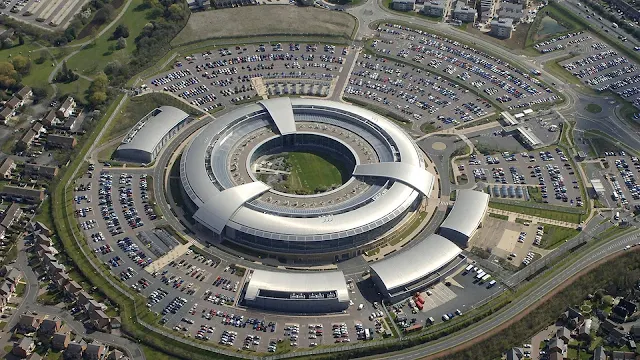British spy agency, Government Communications Headquarters GCHQ in Cheltenham. While it can be lonely to be assigned in the secreti...
What kind of people works at GCHQ?
As according to the GCHQ website says ''we believe that success depends on great minds not thinking alike. That's why as an organization we aspire to recruit and nurture the brightest talent and are building an inclusive workforce that reflects the diversity of the nation we serve.
MI5
A career at MI5 is like no other. Not only is it rewarding and unique, but the variety is unlike anywhere else. Our employees have significant autonomy to manage their own careers and the opportunity to change jobs or business areas every two to three years. It wouldn’t be unusual for someone to work in counter-terrorism, recruitment, counter-espionage and corporate communications within their first few roles. This variety together with our supportive and flexible working environment means most people who join MI5 stay for a substantial part of their careers.
MI6
Our people come from many different backgrounds, but they all share the same ambition to work in a unique career that enables them to have an impact on protecting UK interests.
In a revealing interview to BBC Radio 5 Live, the spies eschewed the standard characterizations. Ameesha, an MI5 analyst, said that they were just “ordinary people doing extraordinary jobs”. Describing how the security vetting process prior to joining was “intrusive” and that revealing intimate details of sexual proclivity felt odd “the first time around”, Lilly, who has worked for seven years at GCHQ, Britain's cyber spying agency, said: “you have to talk about your personal life in great detail, but [the vetting officers] really do put you at ease”. “It’s a regular check and now, when I do it, it’s not a big thing at all,” she said. "They’re not there to judge you”.
John, an Officer in the Secret Intelligence Service (SIS) - better known as MI6 - has worked for 15 years in countering the proliferation of nuclear weapons and hunting terrorists. “There are very few things we’re competitive about [between the agencies],” he said. “They’re things like ‘where do you figure in the Stonewall rankings’ or who had the best Bake Off.” The spies described how they needed to do a bit of myth-busting with new entrants. Jo, an MI5 Officer who started as a Linguist 15-years ago, agreed: “one new joiner asked ‘do I have to wear a disguise at work? Another asked ‘do I have to dump my girlfriend to work here? Because if I do, I will’ he said”. Describing the anger and frustration after a terrorist attack, the group agreed such events caused a “sinking feeling” and devastation to be felt throughout the intelligence community. Dia, a GCHQ Officer, said spies channeled their anger after such events, to “go after those who’ve done it”. "We know that we will not stop every attack from happening," Jo said. "As much as we try, we know that the reality is that we cannot stop everything from happening."
The spies talked of the difficulties in leading secret lives, where only their closest family and friends could know the truth. John said he had worked for SIS for six months before he told his husband, which he described as “an interesting conversation”. But Jo acknowledged it was impossible to take all work frustrations home beyond saying ‘I’ve had a rubbish day’. “We’re not superhuman in that sense,” she admitted. Ameesha agreed: “Our work is our second family. We can’t take our work home so we went to our second families.” The group described the internal support mechanisms available to balance the necessity for secrecy with the human reluctance to deceive loved ones. SIS, for example, believes it is important to have fun and laugh together, said John. He described how the annual MI6 pantomime builds resilience throughout the organization.
All agencies occasionally invite parents and children into the office, to help understand a bit more about what the employees do. But some children are just too young to understand. Jo, from MI5, said: “one of my little kids came home and said ‘we’ve got this thing on at school when you can take your parent to school if they do something really interesting and they went “but mummy that’s fine because you don’t do anything interesting so you don’t need to come in”. And I remember thinking ‘if only you knew”. “It’s a conversation for 10 or 15 years time. I’ll get my mummy brownie points then.”

.jpg)






